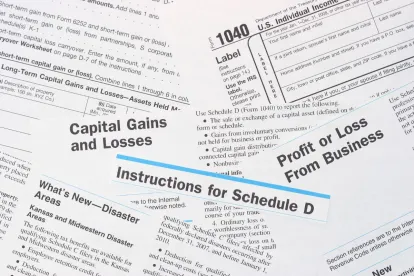The Alabama Legislature has now used 16 of its 30 legislative meeting days so far in the 2022 Regular Session. While the primary focus will be on passing the budgets for the next few weeks, the Legislature has already passed two important tax measures this session – House Bills 82 and 231 (along with their Senate counterparts, Senate Bills 189 and 152, respectively), which among other things provide an additional month to file corporate income and financial institution excise tax returns as part of the Small Business Relief and Revitalization Act of 2022 and an enhanced federal income tax deduction to Alabama families who received certain tax credits under the American Rescue Plan Act of 2021 (ARPA).
The additional one month filing extension from the federal due date was universally supported by the business community and professional associations, including the Business Council of Alabama (BCA), the Council On State Taxation (COST), and the Alabama Society of CPAs (ASCPA). The automatic one month filing extension was particularly warranted in response to the complexity created by the Tax Cuts and Jobs Act (TCJA), and the Coronavirus Aid, Relief and Economic Security (CARES) Act, among other recent federal tax changes. Gov. Kay Ivey signed the bill into law on February 28.
Act 2022-37 (House Bill 231) – ARPA Relief: This act applies to individuals who received the federal child tax credit (including advanced payments received in 2021), and earned income tax credit and/or child and dependent care credit during 2021. Any taxpayer who claims one of these credits shall be deemed to have paid that amount for purposes of computing their federal income taxes paid deduction for Alabama income tax purposes. This is only for the tax year ending December 31, 2021. The Alabama Department of Revenue (ADOR) issued this helpful guidance, which confirms that if a taxpayer had already e-filed their Alabama income tax return prior to the passage of the act, the ADOR will automatically adjust their return to take advantage of the enhanced FIT deduction. The ASCPA website also contains helpful information about this act.
Act 2022-53 (House Bill 82) – Small Business Relief and Revitalization Act of 2022: This act extends the due date for corporate income tax and financial institution excise tax returns to allow an additional month following the due date of the corresponding federal return, with applicable extensions, retroactive to all tax years beginning on or after January 1, 2021 (the ADOR may in its discretion allow an additional one month extension for tax years beginning on or after January 1, 2020, but prior to January 1, 2021). In support of this legislation, COST stated:
S.B. 189 and H.B. 82 represent an important part of fair, efficient and customer-focused tax administration. Because state returns are based on federal returns and cannot in practice be completed until the federal return has been filed, … S.B. 189 and H.B. 82 provide a permanent fix to this recurring issue by simply extending the Alabama filing deadline for corporate returns to at least one month after the federal extended deadline. Making this change would both enhance the accuracy of state returns filed by taxpayers and ease the administrative burdens imposed on tax administrators by reducing the number of amended returns filed due to the concurrent federal and state filing deadlines.
In addition to the filing extension, the act extends the same treatment that Act 2021-1 granted for Alabama income tax purposes with respect to cancellation of indebtedness income and deductibility of expenses paid with loan funds under Section 1005 of ARPA for certain ranchers and farmers. It also excludes the otherwise taxable income in calculating the borrower-taxpayer’s federal income taxes paid deduction.
On an unrelated but important note for small businesses, the act also exempts the first $40,000 of otherwise taxable tangible personal property (based on fair market value) from the state ad valorem tax, and grants municipalities and counties the option to adopt the same exemption by resolution or ordinance. Finally, the act raises the monthly filing requirement for making estimated sales tax payments from $2,500 to $5,000 in average monthly tax liability during the prior calendar year.





 />i
/>i

